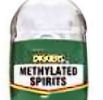

 Here is the opinion of an ex-infection control nurse, on the situation with Corona virus. Use virocides (e.g. methylated spirits and bleach) to disinfect because bacteriocides (most of the handwashes that are disappearing from supermarkets) are ineffective. Cash is dirty - viruses can survive on notes and coins; use electronic cards, but clean keypads and keyboards with alcohol disinfectants with each customer. Act now to avoid unnecessary interactions with other people; don't wait to be told. Worst case scenario is if the infection rate climbs too fast for hospitals to treat the severe cases, because then mortality and economic consequences will multiply, so we need to act to delay infections. The government seems too focused on the economy. If Australia develops a severe epidemic, the economy will be cactus anyhow. The best way to go is with an early economic interruption, so as to slow the infection rate and stop it, rather than delaying shutting non-essential businesses down. The government should (a) provide financial relief in the form of a sickness benefit for interrupted employment and business to assist people to be able to avoid employment interactions, and (b) distribute food where needed.
Here is the opinion of an ex-infection control nurse, on the situation with Corona virus. Use virocides (e.g. methylated spirits and bleach) to disinfect because bacteriocides (most of the handwashes that are disappearing from supermarkets) are ineffective. Cash is dirty - viruses can survive on notes and coins; use electronic cards, but clean keypads and keyboards with alcohol disinfectants with each customer. Act now to avoid unnecessary interactions with other people; don't wait to be told. Worst case scenario is if the infection rate climbs too fast for hospitals to treat the severe cases, because then mortality and economic consequences will multiply, so we need to act to delay infections. The government seems too focused on the economy. If Australia develops a severe epidemic, the economy will be cactus anyhow. The best way to go is with an early economic interruption, so as to slow the infection rate and stop it, rather than delaying shutting non-essential businesses down. The government should (a) provide financial relief in the form of a sickness benefit for interrupted employment and business to assist people to be able to avoid employment interactions, and (b) distribute food where needed.
The mortality rate estimation (among known infections) has risen from 2.5 to over 3%. Although this is still quite low, because the virus is so very very infectious, it probably means that many millions will die, worldwide.
Most importantly, even this mortality rate, however, relies on people who develop serious secondary infections having access to intensive care in hospitals.
The worst that could happen
The biggest problem that can arise is if there are so many infections that the hospitals cannot cope. Then the death rate will rise significantly.
What you and I can do
You and I and other people need to take the initiative to minimise our interactions with others to only those that are absolutely necessary. Avoid crowds and shops. This could help to keep the infection rate down to a level that hospitals could cope with. That is essential. We should not be waiting until the government tells us to do this, since this is the measure that will reduce the outbreak at the outset.
The Victorian government is, however, telling people to make arrangements to stock up on non-perishable food and essential items in order to be able to isolate themselves for two to three weeks. That indicates an awareness that things are likely to get serious. Although the idea behind this is for people to self-isolate if infected, it is also something that people most at risk can do to avoid becoming infected.
Things to stock up on
Eggs, tinned meat and fish, vegetables and fruit that can be cooked and washed in soap and water, fresh meat and fish which can be frozen. Beans and lentils, which can be stored, then boiled.
How to disinfect things: Use virocides
Yes, hand-washing is crucial, but shops and households need to be able to disinfect keypads, keyboards, doorknobs and handles, and products, tables, cars, shelves, benches, and households. Ordinary antibacterial solutions do not kill viruses and we are dealing with viruses. Methylated spirits and bleach do. Methylated spirits is good and cheap for disinfecting hard surfaces rapidly and you can also use it on your skin as in hands and face. Bleach needs to be strong and fresh. Look up the instructions. You need stronger solutions to disinfect body-fluid spills. Don't use hot water. Don't splash in eyes. Ensure ventilation because the fumes are irritating and can affect breathing.(https://www.ncbi.nlm.nih.gov/books/NBK214356/)
Avoid cash and wipe keypads and keyboards
Don't use cash. Money - notes and coins - is a great vector for viruses. Use electronic money, but ask for the business to disinfect the keypad, or carry an alcohol-impregnated wipe and clean the keypad yourself.
Who is most vulnerable?
"Nanshan Chen, MD, of Jinyintan Hospital, Wuhan, and his team conducted a retrospective study on 99 cases and, in very short order, published their initial findings in the Lancet online on Jan. 29. These findings could guide action in other cases and help clinicians all over the world create treatment plans for patients of the 2019-nCoV.
The findings show that older men and patients with comorbidities appear most likely to develop pneumonia associated with the 2019 novel coronavirus (2019-nCoV), and characteristics of those with fatal infections align with the MuLBSTA score — an early warning model for predicting viral pneumonia-related mortality, according to a case review." (Sharon Worcester, Novel Coronavirus: Case Review IDs Clinical Characteristics.)

Comments
quark
Fri, 2020-03-06 17:02
Permalink
Provision panic or prudence?
Add comment